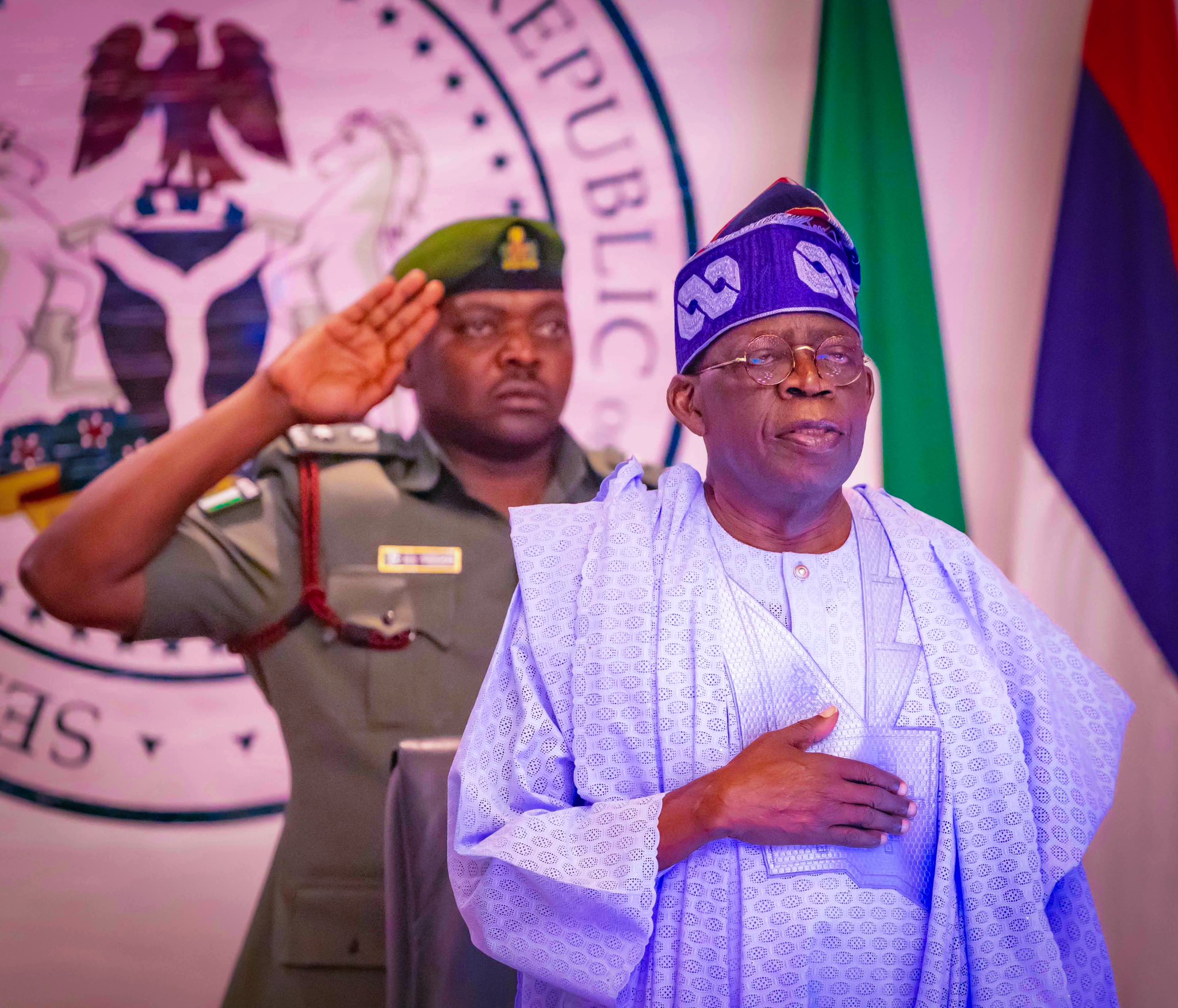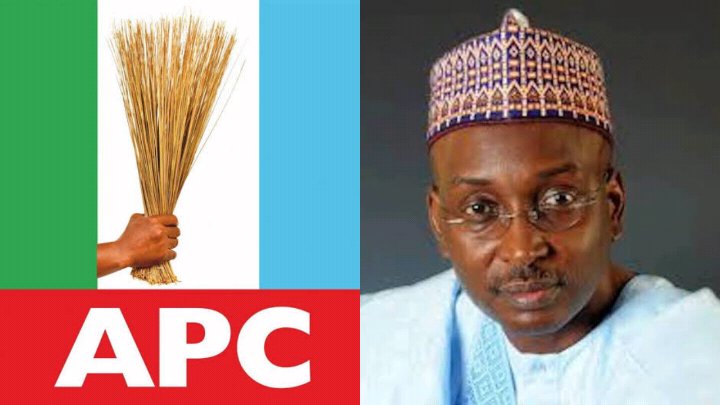President Bola Tinubu has been charged with leading an exclusive government and acting more like a military dictator by Salihu Moh. Lukman, the immediate past national vice chairman of the ruling All Progressives Congress (APC).

It is inconceivable that the President would be managing the affairs of the nation without consulting Nigerians, according to Lukman, who made this claim in a statement released on Saturday in Abuja. Lukman is a man who aspires to a second term in office. “The crucial issue is, having taken responsibility, how long would it take to get to the end of the ‘tunnel’ when will the expected ‘light’ begin to shine?” even though the president has accepted responsibility for the nation’s economic position.

He claims that the primary concern of Nigerians, especially APC members, is not only whether or not they can endure the current misery but also how to comprehend the specifics of government programmes aimed at rescuing Nigerians from it.
“What is the future of the APC? With virtually all of its organs demobilised and the President’s omnipotent status strengthened, the APC is increasingly becoming a closed shop,” he remarked. What are the implications if, despite being envisioned as a progressive party, it ends up generating progressive administrations in reverse gear? Is the issue that party leaders are starting to lose interest in the party’s election performance? Does not caring about the party’s electoral performance imply that you don’t care about Nigeria’s democracy’s future?
READ ALSO: Subsidy Removal: Tinubu Right But Needs Only 12 Ministers. Says Agbakoba
“These questions are being asked not in agreement with any conclusion of being indifferent but to attempt to rekindle the conscience of our leaders, especially President Asiwaju Tinubu. Without any hesitation, one can argue that at the rate we are going, our party, APC, and our leaders have shortchanged Nigerians. What Nigerians are having today wasn’t what was promised at all. The most disturbing reality is that given that the current economic hardship is produced during the first term of President Asiwaju Tinubu, with no end in sight, does it then mean that President Asiwaju Tinubu is not interested in second term? Certainly not. If he is interested in second term, why is he managing affairs of government like a military dictator, shutting down the structures of the party and talking down on citizens like a philosopher king who has absolute knowledge of what will produce possible happiness for citizens?”,he asked.
Lukman pointed out that these are troubling realities for both APC members and Nigerians, undermining hope that the “tunnel” will eventually end and that any bright light will eventually brighten people’s lives.
He stated, “This is partially due to the fact that important policy decisions are being made on the spur of the moment without well-defined plans, or at least without being communicated with Nigerians, since President Asiwaju Tinubu took office on May 29, 2023. Three notable instances are the withdrawal of petroleum product subsidies, the Naira’s floating exchange rate, and the sanctions imposed on the Niger Republic subsequent to the coup on July 26, 2023.
“Mohammed Idris, the Minister of Information and National Orientation, announced on Monday, February 26, 2024, following the Federal Executive Council (FEC) Meeting, that the Federal Government has resolved to implement the recommendations of the Steven Oronsaye Committee report, adding to the impulsive approach to decision making. Following that ruling, 263 agencies out of the 541 Federal Government parastatals, commissions, and agencies that were in place in 2012 should be dissolved, 38 should be merged, 52 should be merged, and 14 should be returned to ministry departments. A committee, including the Secretary to the Government of the Federation, the Head of the Civil Service, the Attorney General of the Federation, and the Ministers of Budget and Planning, has been appointed in order to expedite implementation within the allotted 12-week period (3 months).
Mrs. Hadiza Bala Usman, Special Advisor to President Asiwaju Bola Tinubu on Policy Coordination, provided additional comments regarding the FEC’s choices, stating that the committee is responsible for ensuring the necessary legislative reforms and restructure to achieve implementation. Ideally, this would have been included in a plan to restructure the Nigerian public sector and increase its productivity and efficiency. What assurance is there that, once put into effect, the new viewpoint will save costs and be effective in providing services to Nigerians?
“As it is, the emphasis is more about trimming the size of of the civil service based on the old neoliberal agenda of World Bank and IMF. The approach, from the way it is being introduced is almost exactly the way previous administrations, especially military governments have initiated public service reforms in the country. Issues of engaging stakeholders aimed at guaranteeing inclusivity in policy implementation would appear to be taken for granted. Even the committee setup excludes critical stakeholders, which means stakeholders can only react to challenges of implementation with hardly any potential to influence or minimise possible negative consequences.
“Arguably, with respect to all these issues, it is as if government first announces decisions before beginning to think in terms of what needs to be done to manage the consequences that followed. In which case, rather than acting as a progressive government that is dynamic, action oriented towards improving the welfare conditions of citizens, President Asiwaju Tinubu’s administration is behaving more like a reactionary government. Given such reality, it is almost impossible to predict what the goal or vision of the government is. This was clearly the same problem we had with former President Muhammadu Buhari’s government. The incomprehensible reality is that both former President Buhari’s and current President Asiwaju Tinubu’s governments are APC governments, which got elected based on the promise of changing Nigeria. Part of the change that is expected is having a government that guarantees and accommodates inclusivity, based on which the outcry of citizens is factored and utilised to guide design and implementation of government policy.
“From the time of former President Buhari to the current era of President Asiwaju Tinubu, issues of inclusivity are in reverse gear. Rather than engaging Nigerians and getting them to own policies of government, supposedly progressive governments talked down on Nigerians and like dictators almost tell citizens to take as given every decision taken, even when faced with grave consequences, threatening survival as is presently being experienced. With a manifesto that was the product of robust internal consultations during the merger negotiations that produced the APC in 2013, the expectation was that, starting from the government of former President Buhari, through strong engagements of diverse interest groups in the country, the APC will begin to translate the party’s manifesto and all campaign promises into clearly defined policy decisions.
“Unfortunately, the most unexpected manifestation of lack of inclusivity in democracy is what appears to be a conscious demobilisation of the APC as a political party. From a situation whereby the challenge was to enforce the activation of party structures as provided in the constitution of the APC, through which party members and leaders could have a say in the process of managing governments produced by the APC, the government of President Asiwaju Tinubu has succeeded in completely insulating itself from basically all structures of the party. Few party leaders have access to him, which except for the National Chairman and may be National Secretary, other members of the National Working Committee (NWC) could at best be having distant or shadowy access to the President and other government functionaries. Perhaps, unlike during the tenure of former President Buhari when National Chairman meet the President periodically together with other members of the NWC, at least up to June 2020 during the tenure of Comrade Adams Oshiomhole, the current reality is that only the National Chairman meets the President.
“The consequence is that we are in a democracy that produce a ruling party, which scorn meetings. We have elected self-centred Presidents who hardly see the value of other party members. From the time of former President Buhari to today’s President Asiwaju Tinubu era, the orientation of government and party politics is that President is omnipotent, who no one can question. This has continued in a worse form under President Asiwaju Tinubu largely because at least under former President Buhari, he never invokes his omnipotent status to nullify subsisting agreement within the party. Interestingly, President Asiwaju Tinubu who is expected to be more democratic and progressive as well, one of the first exercise of his omnipotent leadership is to nullify zoning agreement within the party by moving the position of National Chairman out of North-Central to North-West with hardly any consultation with party leaders in both the two zones”.



















